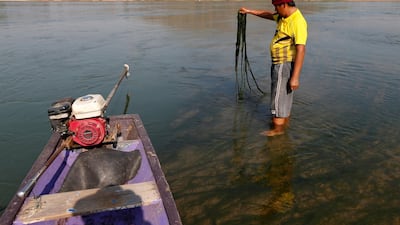The environmental problems the global east faces are well-documented and serious. According to a 2018 United Nations Environment Programme report, “92 per cent of Asia and the Pacific’s population are exposed to levels of air pollution that pose a significant risk to their health.” Anyone who has experienced the choking haze that periodically afflicts many countries, including India, Malaysia and Indonesia, needs no reminder of that.
The mighty Mekong, a river which flows through China, Myanmar, Laos, Thailand, Cambodia, and Vietnam, has been so damaged by the overbuilding of hydropower dams that levels in Tonle Sap, the largest freshwater lake in South-East Asia, reached record lows last year. Species of fish, finding it harder and harder to swim upstream to spawn, are going extinct, while the sediment that for centuries has nourished flood plains on the Mekong’s banks is being blocked by the dams; both are already having devastating effects on food production and prices.
Recent research suggests that much of Bangkok and Ho Chi Minh City, as well as Jakarta, could be below high-tide levels by 2050, and 70 per cent of those threatened by rising seas live in China, Bangladesh, India, Vietnam, Indonesia, Thailand, the Philippines and Japan.
Attempts to be cleaner and greener have not always worked out. In 2017, the Chinese authorities made a commendable effort to reduce burning coal for power and heating in the north of the country. They were so successful, however, that there ended up being a power shortage. After children were pictured at school in sub-zero temperatures and a major factory shut down, a big coal-fired power plant had to be turned back on.
But at least efforts are being made. Asian countries are showing a willingness to make the tough but necessary choices. China recently announced a ban on single-use and non-biodegradable plastic bags to be implemented in its major conurbations by the end of 2020 and countrywide by 2022. Single-use straws and throwaway plastic cutlery will also be banned. Thailand is aiming for an end to single-use plastic by the end of 2021. Malaysia has declared a roadmap towards the same goal.
These moves represent major change in countries with far lower levels of environmental consciousness that in the West. (When I ask a local driver to pick up some oranges from a roadside stall for me, he appears baffled when I hand him reusable plastic bags. No need – they come free with the oranges, implies his look.) And they will be hugely disruptive – especially to a food industry that is super-reliant on single-use plastic. In Malaysia, even teh tarik, the national tea drink, always comes in a plastic bag, never a possibly reusable cup, if you want to take away.
In the US, the current administration’s views on such matters are hardly a secret; the US president has repeatedly said in the past that he thought climate change was a “hoax” made up by China. America’s abdication of leadership on the environment has an outsize effect, but its government is not alone in its belief that industrial interests are far more important than preserving areas of virgin wild lands. Brazilian President Jair Bolsonaro’s plans to allow more mining in the Amazon were criticised for amounting to "genocide and ecocide" by indigenous leaders this month. They will not be appeased by his creation of a new Amazon Council and environmental police force, both of which they suspect will in fact work to support the mining conglomerates, rather than the peoples of the rainforest.
In the UK, Prime Minister Boris Johnson may well at times be influenced by his green activist partner, Carrie Symonds, but there are many in his Conservative Party who strongly agree with well-known climate sceptics like James Delingpole and Matt Ridley. We will see what trade agreement the UK reaches with the EU by the end of 2020, but a host of top Tories will be hoping that it will lead to the country igniting a “bonfire of the regulations” – and that includes environmental ones.
Countries in the global east are not perfect, and there are environmental implications of their continued development. Some objections, however, are ludicrous. A recent commentary by a group of academics observed, in relation to China’s Belt and Road Initiative infrastructure projects, that “new roads, in particular, have the potential to cause habitat loss and fragmentation, increased wildlife mortality from roadkill and the opening up of frontier landscapes.” Try telling that to the Iban tribespeople in Borneo jungles whose only mode of transport is currently boat. Critics who want to keep them in a timeless idyll don’t have to live in it.
It is monstrous too, that countries in a West whose industrialisation was the primary cause of the climate crisis should now not only seek to evade responsibility but to take steps that will make the situation worse. The global east may have had to learn some lessons from the global west in environmental protection in the past. Now, to what ought to be the shame of Mr Trump and others, it looks like the reverse.
Sholto Byrnes is a commentator and consultant in Kuala Lumpur and a corresponding fellow of the Erasmus Forum


